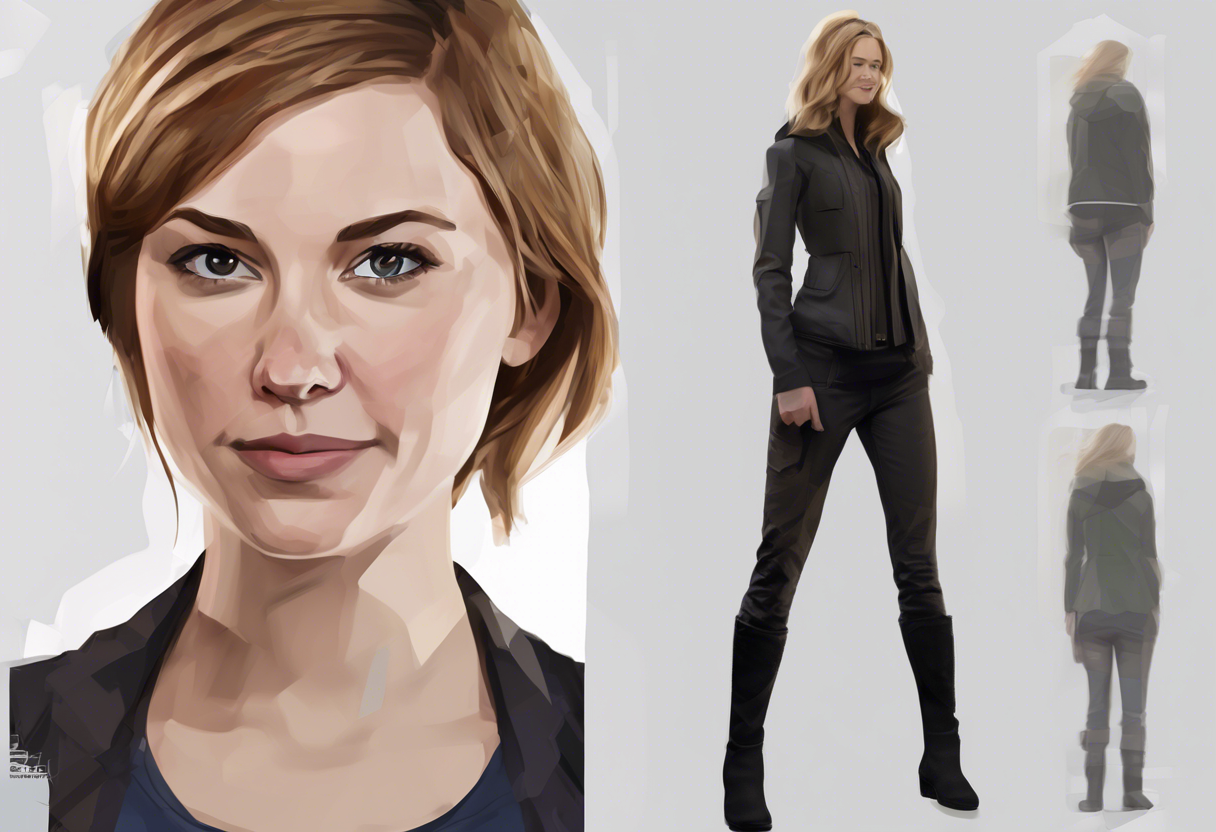Contents
Susan Black: A Detailed Character Analysis from the Divergent Series
Introduction
Susan Black is a minor yet significant character in the Divergent book trilogy by Veronica Roth. Born and raised in the Abnegation faction, Susan is the daughter of Mr. Black, a council member of Abnegation, and the sister of Robert Black. Her character serves as a reflection of the Abnegation values and provides a contrast to the main protagonist, Tris Prior. This article will delve into Susan’s origins, her role in the narrative, her character analysis, the themes she embodies, her cultural impact, critical reception, and her lasting legacy.
Role in the Story
Susan Black’s storyline is intricately woven into the fabric of the Divergent series, particularly in the first book, Divergent. She is introduced as Tris Prior’s neighbor and childhood friend, growing up in the Abnegation sector. Susan’s life takes a dramatic turn during the Choosing Ceremony, where her brother Robert decides to transfer to the Amity faction, while Susan remains in Abnegation [1][5].
In the midst of the Dauntless attack on Abnegation, Susan’s father, Mr. Black, is killed, marking a pivotal moment in her journey. She survives the attack and later meets up with Tris, Caleb Prior, and Four at Amity. Together, they escape the attack on Amity and join the factionless on a train, eventually making their way to a safe zone where surviving Abnegation members are living [1][5].
Susan’s interactions with other characters are noteworthy, especially her relationship with Caleb Prior. She develops a crush on Caleb, which is reciprocated, adding a layer of personal drama to the larger conflict of the story [1][5].
Character Analysis
Susan Black’s character is defined by her adherence to Abnegation values such as selflessness and humility. Growing up in Abnegation, she is taught to prioritize the needs of others over her own, a trait that is evident in her actions throughout the series. Despite the chaos and danger surrounding her, Susan remains committed to the principles of her faction, even when faced with personal loss and hardship.
Her personality is marked by a quiet strength and resilience. Unlike Tris, who is more assertive and daring, Susan’s approach is more subdued, reflecting the more passive nature of Abnegation. This contrast highlights the different ways individuals can embody faction values and cope with adversity.
Susan’s motivations are rooted in her desire to maintain the stability and security of her community. Her decisions are guided by a sense of duty and loyalty to her faction and family. However, her character also shows a capacity for adaptation and survival, as she navigates the dangerous landscape of the series.
One of the compelling aspects of Susan’s character is her relatability. She represents the ordinary individual caught in extraordinary circumstances, making her experiences more accessible to readers. Her flaws, such as her initial hesitation in the face of danger, make her more human and relatable, while her strengths, like her unwavering commitment to her values, inspire admiration.
Themes and Symbolism
Susan Black embodies several key themes of the Divergent series. One of the most significant is the theme of selflessness versus self-preservation. As an Abnegation member, Susan’s actions are consistently driven by a desire to help others, even at personal cost. This contrasts with the more individualistic and daring approach of Tris, highlighting the tension between these two values in the series.
Another theme Susan represents is the resilience of community. Despite the destruction of her home and the loss of her father, Susan continues to find strength in the bonds of her community. Her journey underscores the importance of social connections and the support that comes from shared values and experiences.
Symbolically, Susan can be seen as a representation of the everyday hero. She is not a central figure in the grand narrative but plays a crucial role in the lives of those around her. Her story serves as a reminder that heroism is not limited to grand actions but can also be found in the quiet, everyday acts of courage and loyalty.
Cultural Impact
Susan Black’s character, although minor, has a significant cultural impact within the context of the Divergent series. She represents a segment of the population that is often overlooked in dystopian narratives—the ordinary citizens who are not the primary protagonists but are deeply affected by the events unfolding around them.
However, it is worth noting that Susan does not appear in the film adaptations of the series, which may have limited her broader cultural recognition. Despite this, within the literary community and among fans of the books, Susan remains an important character who adds depth and complexity to the narrative.
Critical Reception
Critics and audiences have generally viewed Susan Black as a well-integrated and meaningful character within the Divergent series. Her portrayal as a steadfast and selfless individual has been praised for adding a nuanced layer to the story. However, some critics have noted that her character, like several other minor characters, could have been further developed to enhance the overall narrative.
The absence of Susan in the film adaptations has been a point of contention among fans, who feel that her character’s omission detracted from the richness of the story. This highlights the importance of minor characters in fleshing out the world and themes of the series.
Legacy
Susan Black’s legacy in the Divergent series is one of quiet strength and community resilience. Her character serves as a reminder that heroism is not solely the domain of the main protagonists but can be found in the everyday actions of ordinary individuals.
In contemporary discussions, Susan’s character can be seen as a reflection of the importance of community and social bonds in the face of adversity. Her story inspires a deeper appreciation for the unsung heroes who often go unnoticed but are crucial to the fabric of society.
Susan Black has also influenced other works in the young adult dystopian genre by highlighting the value of minor characters in enriching the narrative. Her character archetype—the ordinary person in extraordinary circumstances—has been a compelling element in many subsequent stories.







